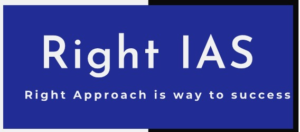- Drugmaker Dr Reddy’s Laboratories (DRL) announced recently that it will distribute 100 million (10 crore) doses of Russia’s Sputnik V Covid-19 vaccine in India after conducting final-stage human trials and receiving regulatory clearances here.
- Should India’s top drug regulatory body sign off on phase 3 trials in the country, Sputnik V will replace Serum Institute of India’s (SII’s) ‘Covishield’ as the frontrunner in the race to produce a Covid-19 vaccine for India.
What is the Sputnik V vaccine?
- This is a vaccine that uses what is known as ‘human adenoviral vector’ technology.
- Adenoviruses cause a wide range of illnesses ranging from fevers, coughs, and sore throats to pink eye, diarrhoea, and bladder infections.
- The adenovirus is modified and weakened so that it cannot replicate in the human body.
- Instead, it will act like a Trojan Horse, carrying instructions for the cells in the human body to produce the spiky outer layer (spike protein) of SARS-CoV-2, the virus that causes Covid-19.
- This is expected to help the body recognise the spike protein as a foreign substance and build an immune response against it so that it can tackle the real virus when it tries to infect.
- Sputnik V uses two different genetically modified adenoviruses to carry the spike protein.
- The vaccine containing the second adenovirus is given 21 days after the first one, and is expected to “boost” the body’s immune response and build “long-lasting immunity”.
- Developed by Moscow-based Gamaleya Research Institute of Epidemiology and Microbiology, the Sputnik V vaccine was approved for public use in Russia on August 11.
- Going by the government’s vaccination priorities, healthcare, and frontline workers, as well as those who work in occupations that would make them vulnerable to Covid-19 exposure, might be the first to get this (or indeed, any other) vaccine.
- Following this, the older population and those with co-morbidities may get the shot.
- This will all depends on how long it takes for the phase 3 trials to conclude in India, and whether India’s regulatory authorities are convinced by the safety and efficacy data generated in these trials.
- This vaccine was approved in Russia even before phase 3 trials were conducted.
- Even the phase 1 and 2 human trials were conducted on a very small group of fewer than 100 people.
- While findings from the early studies showed that the vaccine was safe, the relatively small number of volunteers in the trials, and the skipping of phase 3 trials before approvals, has drawn global criticism.
- The only way to truly ascertain the safety and effectiveness of this vaccine is to look at long-term information from those vaccinated in the earlier trials, as well as to conduct larger phase 3 trials over a longer period of time.
- New reports to come out of clinical studies have found that 1 in 7 people suffered from side-effects post being inoculated by the Russian vaccine.
- The Soviet nation’s health minister, Mikhail Murashko, in a statement to Moscow Times said that nearly 14% of patients who have been administrated the vaccine reported suffering from side-effects.
